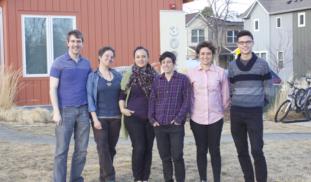Please wait...
About This Project
We are using a Community-Based Participatory Research approach to explore the experiences of people facing food insecurity, their challenges in accessing food, and opportunities to take action to help people realize their own personal and family food security. Using multimedia interviews, participatory data analysis, and design research, this project strives to discover barriers to food security and to develop ways to improve food access in Boulder, Colorado.
More Lab Notes From This Project

Browse Other Projects on Experiment
Related Projects
Voices of food insecurity: Exploring barriers and strategies to healthy food access
We are using a Community-Based Participatory Research approach to explore the experiences of people facing...
Digital preservation of immaterial island culture in the face of climate change
In island states around the world, living culture is under threat. Climate change, globalization, increased...
Big data and the law: should we graph the entire justice system?
Justice systems can be represented as a graph: a network of nodes linked by different kinds of relationships...





